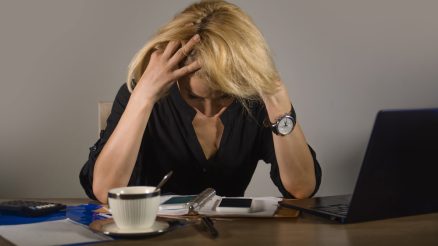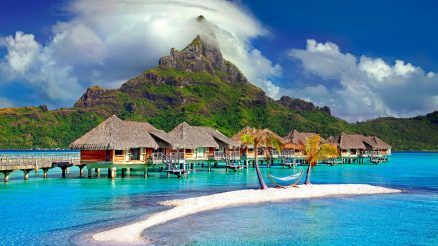Water, essential for all forms of life and a fundamental component in generating other resources like electricity, as well as being crucial for industrial and agricultural activities, is continuously at risk of depletion.
When you turn on the faucet, the flow of water is taken for granted, so dealing with a lack of water is often a frustrating experience. Whether due to high temperatures, the dry period, greater demand for consumption or operational issues, it can occur and it is not always possible to predict it. However, in the midst of so many questions, some myths and truths appear.
This article will clarify some points about this valuable asset for the planet and bring some possibilities to solve the issue of lack of water. Keep reading and learn how to take care of this feature so you don’t miss it. Come on?
Why is there a lack of water?
Lack of water at home is something that can happen to anyone and for many different situations. The reasons range from a water crisis, to specific operational problems in the public supply service, to internal leaks. Thus, it is important to note a few points to identify the reason for the lack of water.
Check if the neighbors are also without water or if it is just in your property
If your neighbors are also without water, the reason for the lack of water is probably a maintenance in the water network carried out by the concessionaire responsible for supplying the city. In this case, the focus should be on conscious consumption until the water returns.
Now, if only your house is lacking water, it is a strong indication that it is an internal leak. One way to check this is to check that the water comes out of the first tap directly from the street, but does not come out of the taps inside the property. In this situation, verifying that the easel register is open is also important.
Water crisis and rationing
Changes in the availability of water and in the country’s rainfall regime can cause a drought that leads to a water crisis. Generally, human action is the main responsible for this situation, which can be accentuated by some natural phenomena. In some cases, the situation is so severe that water rationing may be necessary , when the resource is only available for a few hours a day or on a few days of the week, depending on the scenario.
Maintenance on the water network
Sometimes, the concessionaire responsible for the water service in the city needs to interrupt the supply to carry out maintenance. There are cases where this maintenance is scheduled, so the sanitation company is able to inform the population so that they can prepare and save water . Those who have a water tank tend to have fewer problems in this situation, since the reservoir stores a significant amount of the resource that can supply the demand during the period with a lack of water.
However, there are cases where maintenance is an emergency, that is, it was not planned. This occurs in case of problems with a power outage, for example, as the water collection pumps usually work with this feature, or a break in the water network. In situations like these, the concessionaire is unable to inform the population in advance, and it is necessary to wait for the regularization of supply. Therefore, practicing conscious consumption habits is always essential.
Another important point to remember is to use a water filter solution for drinking water to maintain the quality of the water that arrives at the tap of the population’s homes.
Water: preserve so as not to miss
To understand the importance of water conservation, we can turn to some data and mathematical logic. The Earth has 3/4 of its surface covered by this element, but only 3% of this total is fresh water . Of this amount, 2% is frozen in the polar ice caps and only 1% is available water for collection, treatment and distribution to the population.
Added to this is the problem of the exponential growth of the world population in recent decades, which has brought with it a significant increase in demand for the resource. This is where the moniker liquid gold came from to define freshwater, as it is becoming scarce and soon it may not be sufficient to meet the needs of the world’s population.
Another key point is the unequal distribution of water resources across the earth’s surface. As a result, some areas have plenty of water and others suffer from drought. All of these issues create the need to preserve water so that all people have access to clean, potable water, especially for generations to come.
Discover some myths and truths about the lack of water
In the midst of the need and discussion of how to preserve the resource, increase availability and even the fear of water shortages, some myths and truths emerge. Now let’s see what they are to learn all about water resources and how to promote sustainable development by saving water.
In the absence of fresh water, is it possible to consume seawater?
It depends! With so much salt water on the planet, one of the first alternatives we think about when it comes to lack of water is the possibility of using sea water.
The truth is that this is a resource that can be used as long as it goes through a desalination process. Due to the presence of salt, when drinking seawater our body becomes dehydrated instead of hydrated, as the cells lose water through osmosis. However, it is possible to desalinate sea water , even though this is a costly alternative. In places where there are not many possibilities for water sources , such as in Israel, the alternative is used.
With droughts, can even artesian wells dry up?
Truth! The formation of groundwater and the consequent supply of artesian wells require constant soil humidification. But that depends on the preservation of forests — which conserve this moisture — and on rain. With periods of drought and drought increasingly severe, and with the increase in water use worldwide, these underground reserves tend to disappear.
If it rains again, will the lack of water end?
Myth! Soil humidification and the formation of water tables for supply depend not only on rain, but also on the preservation of forests and, consequently, the end of deforestation, the improvement of already deforested soils, the urban space and also the rational use of water by people (including general population, industries and agriculture). In other words, it is not enough to water the earth, but to create conditions for this water to be absorbed and stored in the soil.
Is it true that Brazil has one of the largest hydrographic basins in the world and will never have a water shortage?
Myth! The country does have one of the largest hydrographic basins in the world, but climate change , deforestation and poor water management have already caused a lack of water, with consequences that go beyond the availability of water for the population, such as the so-called blackouts. As already pointed out by us, having water is not enough, it is also important to create conditions for the preservation of water.
With the lack of water, will we be able to consume and reuse water?
Truth! The reuse of water is already a reality. In most countries, its use for human consumption is not yet allowed, but it is used in industries or for unloading and washing buildings and streets. However, there are already resources to enable its ingestion in some parts of the world.
See what are the best ways to take care of this resource
Save and preserve, these are the 2 verbs we should keep in mind when taking care of water. And this is a work that involves the collaboration of all sectors of society.
We saw that the lack of water resources is not only due to the lack of rain, but also to its poor management. We currently live in a society that wastes clean water, pollutes lakes, rivers and groundwater and encourages aridity with the deforestation of forests and the misuse of land.
To try to counteract this logic and contribute to the future of water , it is possible to contribute with small attitudes in everyday life:
- watch out for leaks in your property
- avoid wasting water by replacing the hose with the bucket when washing sidewalks and cars;
- reuse water from the washing machine;
- take quick showers, up to five minutes;
- contribute to environmental education in the community;
- reduce consumption and waste generation.
As we have seen, the lack of water is an ever-increasing reality. In addition to the day-to-day inconvenience, there is the fear of the reduction or end of this very basic resource as a whole.
How about contributing to water conservation by teaching children from an early age to have a more sustainable relationship with the environment?





